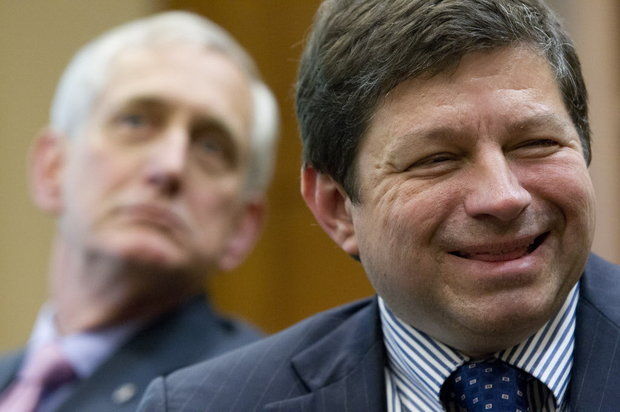Date: 4 November 2014
To: Mayor Hales
Commissioner Fritz
Commissioner Fish
Commissioner Novick
Commissioner Saltzman
From: Southeast Uplift Board of Directors
Subject: Portland Street Fees
When the Portland Bureau of Transportation (PBOT) proposed a new “Street Fee” earlier this year, a sense of urgency framed declarations about its absolute need. Portland’s roads were falling apart, and if we failed to fix them, addressing the problem would only cost us much more in the long run.
In May, the Portland Bureau of Transportation, citing examples from a number of smaller cities in Oregon, proposed shifting tax burdens to home owners and local business and away from fuel users. The discussion has been disjointed with little in the way of analysis and even less public involvement.
Southeast Uplift’s board representing the twenty inner southeast neighborhoods would like to make the following points:
- A fee, requiring no vote of the people, requires more public involvement, not less. The discussion has lacked transparency, involved a very limited number of participants, and is not well understood.
- We need more time and more discussion about the choices between street maintenance and safety.
- The design of the fee and its implementations have serious deficiencies
Public Involvement and Transparency
Portland’s neighborhood associations are the primary focus of public involvement in the city. In this case, there has been very limited communication with the neighborhood associations or the coalitions, like Southeast Uplift.
Concerned citizens have had access to a disorganized web site, but this provided few comprehensible answers.
Over the summer, two committees were formed, one composed of low income and advocacy groups and one representing business interests, to provide feedback on the street fee proposal. These committees were not representative of the broader citizenry who will be asked to fund this measure. The standard public involvement framework: Office of neighborhood Involvement, coalitions, and neighborhood associations were neither consulted nor briefed by city officials.
If the street fee does not face the vote of the people. Public involvement should be more intense, not less, and it should be possible for the average Portland resident to understand the proposal.
Lacking a more inclusive public process, the new fee should be put forward for a public vote.
Allocations and Commitments of the Street Fee
We are concerned that the new street fee will not be used to replace existing budget items. We are recommending that any incremental funding be used to fund incremental projects.
The division between safety and maintenance is poorly understood and documented. There are many points of view and most have not been invited to the table. We see that the basic allocations have not changed over time and believe that adequate discussion and consensus could lead to make changes – if we had the time and public involvement to bring to the issues.
Correcting the Deficiencies
Oregon, like other states, depends on a combination of fuel taxes and weight-miles taxes to fund transportation. Fuel taxes are assessed on a federal, state, and local basis. In Oregon, the gasoline tax is lower than that in our two neighboring states of Washington and California. For diesel, Oregon primarily depends on weight-miles. Some Oregon cities such as Eugene, Tigard, Milwaukie to name a few, also assess a per gallon tax on diesel.
The current street fee methodology has a serious deficiency. In many cases major users of roads may pay less than a single Portland resident. The proposed street fee insulates large fuel users who typically operate fleets of heavy vehicles that cause major roadway wear and tear from paying their fair share. Consider for instance:
- Home owner: Three cars/25,000 miles a year/4 tons/3,650 trips a year: Estimated Street Fee $0 to $600/year.
- UPRR Brooklyn Yard: 1,000 heavy trucks/33,000,000 miles a year/40,000 tons/400,000 trips a year: Street Fee: $480/year.
This does not appear equitable. In fact, this appears so inequitable that it is most likely a computational deficiency.
Major institutions which are heavily dependent upon trips to their location are paying minimal amounts in relation to residential properties. Major medical institutions such as OHSU, Providence Hospital or Legacy Good Samaritan would apparently pay only $60.00 per month after the non-profit discount. These are multi-million dollar Institutions and they are being given major reductions despite having a tremendous impact on the transportation system.
The new street fee would impose new burdens on the small businesses that make Portland a special place to live and visit. Large corporations can more easily absorb the costs of complying with complicated reporting requirements than small operators who drive Portland’s thriving entrepreneurial scene.
In Conclusion
In terms of approaching a street fee and improving street preservation in Portland we would like to see:
- More public involvement
- A fee structure that is fair and simple and assesses heavy road users their appropriate share
- The new funds dedicated to new uses without reducing existing allocations in the PBOT budget
- In conjunction with other cities, lobby our state government to raise the gas tax raise or move forward with plans to replace the gas tax with an alternative funding mechanism that adequately addresses transportation needs.
- Failing these steps, we need to put the proposed fee to a vote of the people
- On behalf of the Southeast Uplift Board of Directors,
Robert McCullough
President

